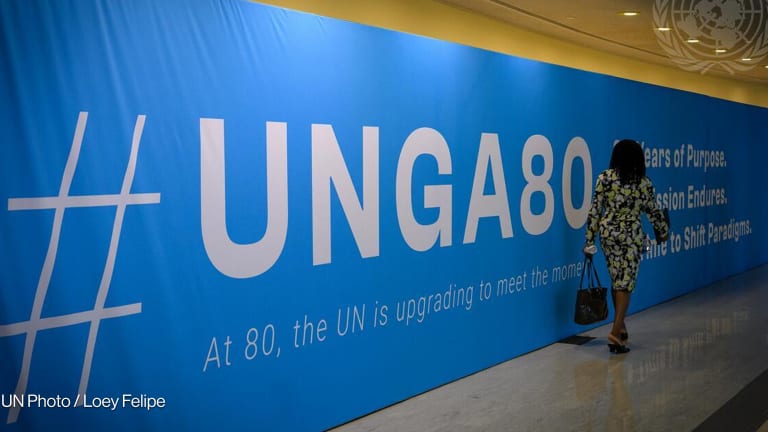The U.K. Department for International Development could play an increasing role in trade in the future, according U.K. Secretary of State for International Development Justine Greening.
Speaking exclusively to Devex in London after delivering her final speech before the U.K. general elections on May 7, Greening said the department was progressively looking to enhance economies in developing countries.
Asked if a future U.K. government led by her own center-right Conservative Party would bring trade into DfID, following similar moves by conservative Australian and Canadian administrations to merge trade and foreign aid departments, Greening said DfID was already “playing a much bigger role in that and partnering up with U.K. Trade & Investment and the Foreign & Commonwealth Office more now than we’ve ever done in the past.”
Read more on the #FutureofDfID:
● UK #GE2015: The moment of truth for DfID?
● As long as there's extreme poverty, there's a need for DfID
● Labour MP: DfID has 'lost its way' under Cameron
● DfID is changing — but is it changing fast enough?
● Debate on the future of aid ‘makes me worry’
● Time to recognize private sector role in UK aid
● DfID's importance 'shouldn’t be understated'








